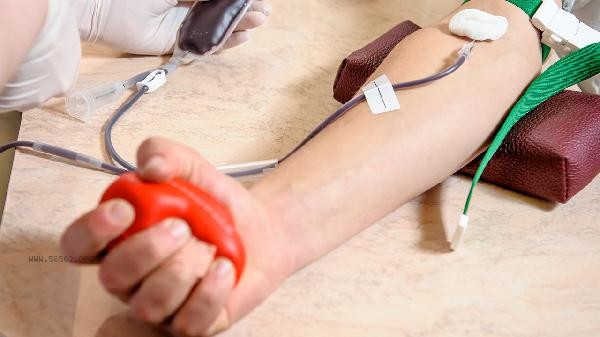Low blood pressure but high blood lipids may be caused by improper diet, lack of exercise, genetic factors, or metabolic abnormalities, and need to be improved through dietary adjustments, increased exercise, medication treatment, and other methods.

1. Improper diet
A high-fat, high sugar, and high cholesterol diet is the main cause of elevated blood lipids. Long term intake of excessive fried foods, desserts, animal organs, etc. can increase the levels of triglycerides and low-density lipoprotein cholesterol in the blood. It is recommended to reduce the intake of saturated fat and trans fat, and increase foods rich in dietary fiber such as oats, vegetables, fruits, etc., which can help lower blood lipids.
2. Lack of exercise
Prolonged sitting or insufficient exercise can lead to a slowdown in body fat metabolism and an increase in blood lipid levels. Regular aerobic exercise, such as brisk walking, swimming, and cycling, can promote fat burning and reduce triglyceride and cholesterol levels. Engaging in at least 150 minutes of moderate intensity exercise per week has a significant effect on improving blood lipid abnormalities.
3. Genetic factors

Familial hypercholesterolemia is a hereditary disease that can lead to abnormally elevated blood lipid levels. If there is a history of hyperlipidemia in the family, it is recommended to undergo blood lipid screening as soon as possible and take preventive measures. For hereditary hyperlipidemia, long-term use of lipid-lowering drugs such as statins may be necessary to control blood lipid levels.
4. Abnormal metabolism
Some metabolic diseases, such as diabetes, hypothyroidism, etc., will affect fat metabolism and lead to increased blood lipids. Diabetes patients are prone to hypertriglyceridemia due to insulin resistance; Patients with hypothyroidism have lower metabolic rates and higher cholesterol levels. For these diseases, it is necessary to actively treat the primary disease and combine with lipid-lowering drugs such as beta or niacin to improve blood lipid levels.
5. Other factors
Obesity, smoking, excessive alcohol consumption, etc. can also lead to elevated blood lipids. Obese individuals have accumulated fat in their bodies, which can easily lead to abnormal blood lipids; Smoking and excessive alcohol consumption can damage vascular health and affect fat metabolism. It is recommended to control weight, quit smoking and limit alcohol consumption, and maintain a healthy lifestyle.

Low blood pressure but high blood lipid needs attention. Although there may be no obvious symptoms in the short term, long-term high blood lipid will increase the risk of atherosclerosis, coronary heart disease and other cardiovascular diseases. By adjusting diet, increasing exercise, medication treatment, and other methods, blood lipid levels can be effectively controlled and disease risks can be reduced. If blood lipids continue to rise, it is recommended to seek medical attention promptly for professional diagnosis and treatment.









Comments (0)
Leave a Comment
No comments yet
Be the first to share your thoughts!